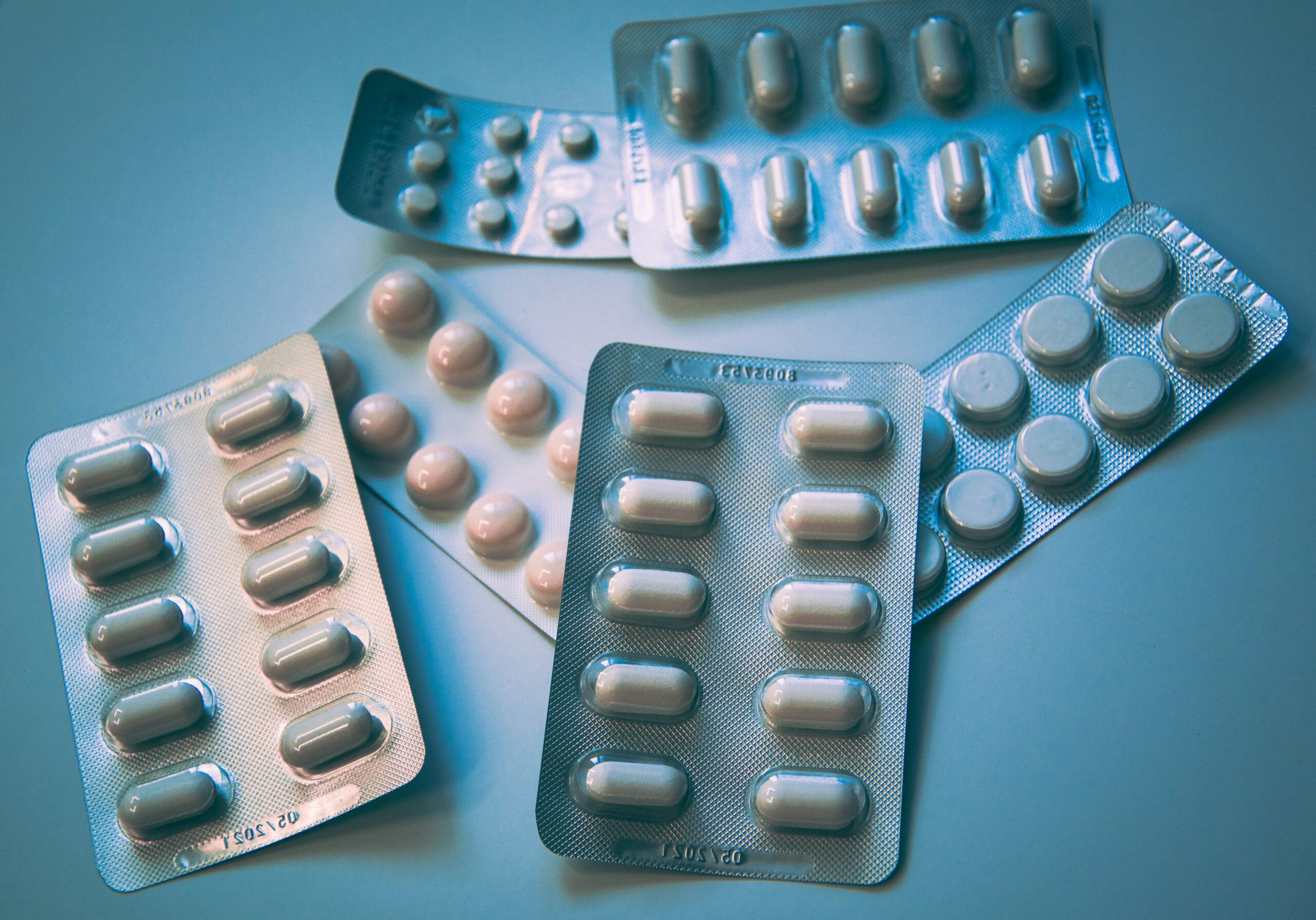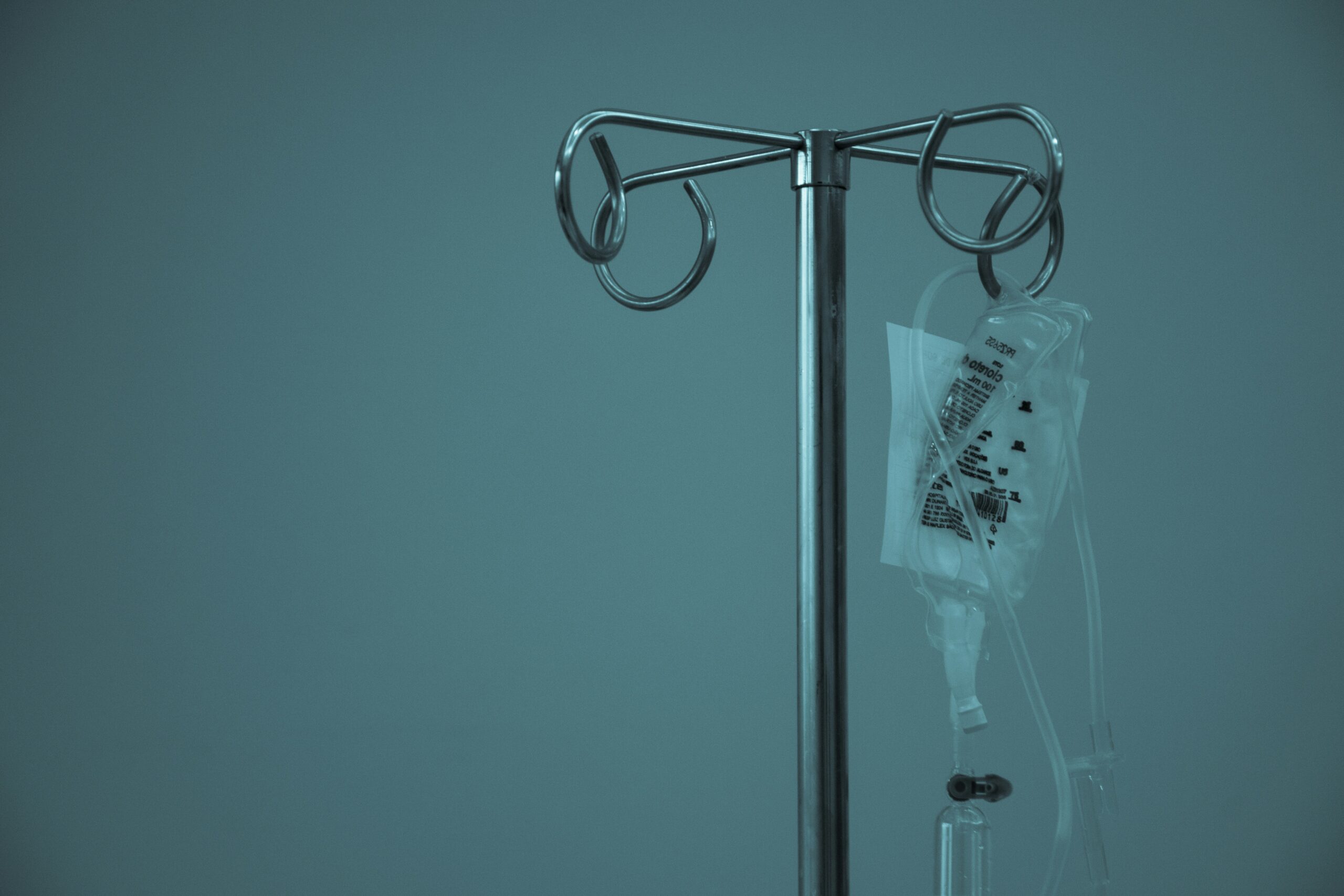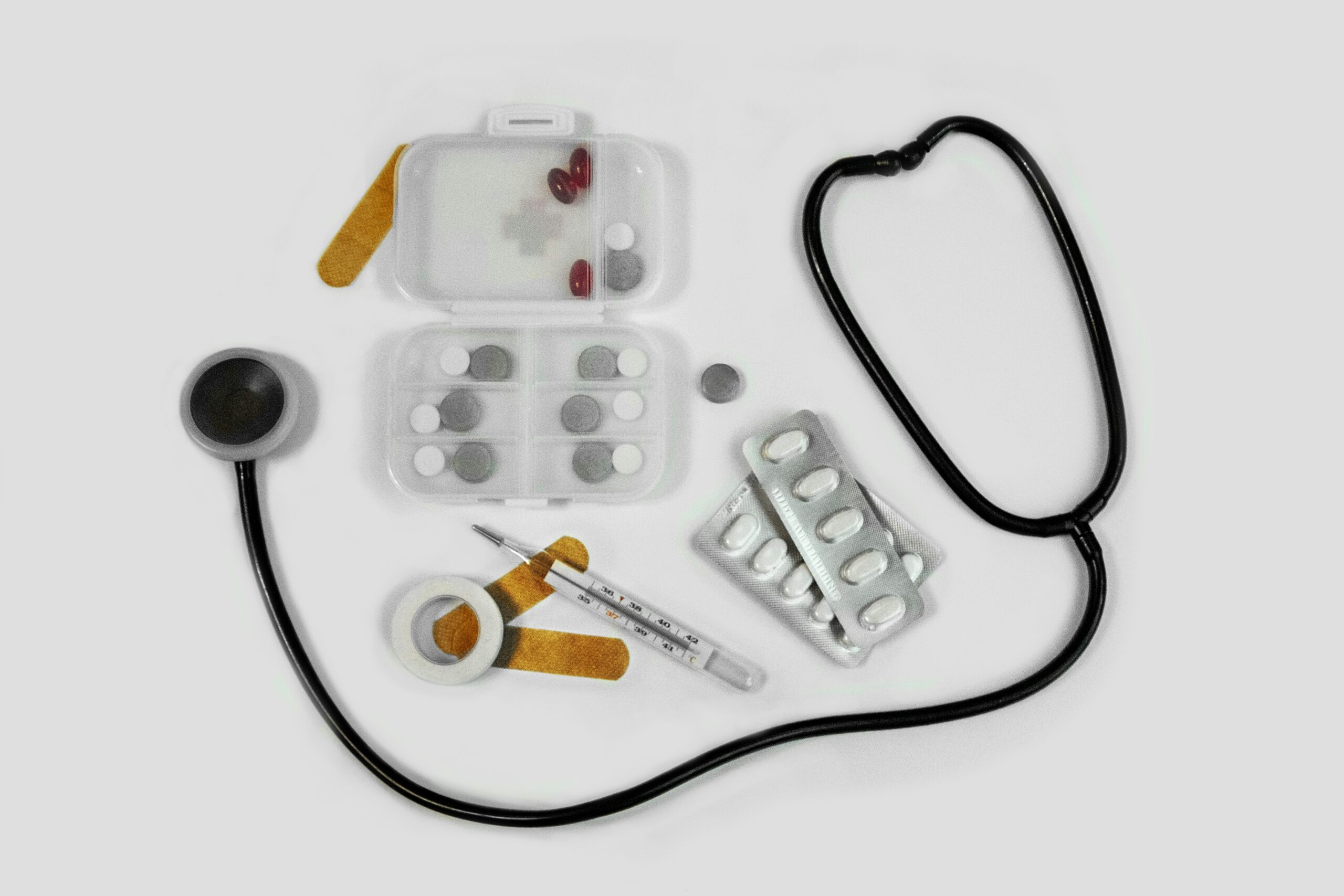Ketamine is a substance that is used in medicine as an anesthetic that produces rapid effects. When appropriately dosed, the psychoactive substance also causes pain relief and sedation, which is why the drug is also used for different goals, such as relieving symptoms of mental disorders. Ketamine bases its mechanism of action on selective inhibition and stimulation of various brain structures.
The use of the substance can cause multiple symptoms and side effects. Ketamine is a potent agent that can be dangerous due to the risk of addiction. Reports state that the substance has been used as a recreational drug in various areas of the world. Chronic use of ketamine is also not recommended due to complications. Find out more about ketamine, a substance with many uses and risks.

Ketamine is a chemical compound called cyclohexanone hydrochloride![]() , which is a glutamate and N-methyl-D-aspartate receptor antagonist. The drug is approved as a low-potency anesthetic or enhancer of medical substances by the Food and Drug Administration (FDA)
, which is a glutamate and N-methyl-D-aspartate receptor antagonist. The drug is approved as a low-potency anesthetic or enhancer of medical substances by the Food and Drug Administration (FDA)![]() . In addition to anesthesia, cyclohexanone hydrochloride has different medical and non-medical uses.
. In addition to anesthesia, cyclohexanone hydrochloride has different medical and non-medical uses.
The substance acts on the central nervous system, inhibiting sensory structures and stimulating the limbic system and visual thalamus. The drug acts rapidly after administration and penetrates the brain, binding to plasma proteins. The substance can be administered intravenously, intramuscularly, orally, intranasally, and rectally. The most excellent bioavailability is when the ketamine drug is administered intramuscularly. Ketamine is used for the following goals:
Ketamine was first used for anesthetic purposes as a substitute for phencyclidine![]() . Ketamine is a powerful dissociative agent that induces loss of consciousness while preserving other vital functions. Substances do not slow the heart rate or breathing. Cyclohexanone hydrochloride maintains pharyngeal and laryngeal reflexes and stimulates the cardiovascular system.
. Ketamine is a powerful dissociative agent that induces loss of consciousness while preserving other vital functions. Substances do not slow the heart rate or breathing. Cyclohexanone hydrochloride maintains pharyngeal and laryngeal reflexes and stimulates the cardiovascular system.
In addition to it, the drug strengthens skeletal muscle tone. Due to its analgesia-inducing properties, the agent is used in specialized anesthesiology, allowing invasive surgical procedures. Ketamine is also a helpful agent used in the emergency department and for emergency procedures due to its rapid action.

Ketamine is also effective in treating chronic pain. It interacts with sigma receptors to influence the development of ongoing or worsening pain, reducing pain memory. Taking the substance prevents a condition in which spinal cord neurons are sensitized to painful stimuli. In treating pain, the substance must be administered in much smaller doses to avoid inducing unconsciousness.
Small doses of the drug are adequate for the complex regional pain syndrome![]() or in relieving post-operative pain, among others. In addition to this, ketamine can also be used to treat acute pain, but its side effects may require concomitant administration of medication to alleviate these symptoms. The substance may also be indicated for neuropathic pain, which is a challenging condition to treat.
or in relieving post-operative pain, among others. In addition to this, ketamine can also be used to treat acute pain, but its side effects may require concomitant administration of medication to alleviate these symptoms. The substance may also be indicated for neuropathic pain, which is a challenging condition to treat.
Ketamine is also sometimes used to treat an epileptic condition that is refractory to other conditions. The substance can be helpful in the intensive treatment of prolonged epileptic seizures. Status epilepticus that does not subside is a major medical problem. The severe type of the disease can put patients at risk of complications such as brain damage. Consequently, various options are used in complex cases, one of which is the administration of ketamine, which can effectively treat refractory pre-epileptic conditions.

The properties of ketamine also play an essential role in the context of mental disorders such as depression. Substance can be an antidepressant showing effectiveness in treating suicidal thoughts and controlling symptoms of depression. The drug affects various types of receptors and neurotransmitter systems.
When depression is refractory to treatment with different medications, cyclohexanone hydrochloride is used. Most tablets used to alleviate the condition show a slow therapeutic effect, so ketamine is used in severe courses of depression. The rapid action of the drug is of paramount importance here, as patients' depressive symptoms are relieved within a few hours of a single dose of the substance.
Cyclohexanone hydrochloride may also be effective in different psychiatric problems, such as anxiety disorders. Some studies indicate that carmine improves people with social anxiety, but more research is needed on the correlation between this substance and anxiety. Indeed, some sources report that the use of the drug can cause side effects, including anxiety and even extreme fear. Therefore, ketamine, which is a very potent drug, is not currently a mainstay of treatment for anxiety disorders.
Specialists are still looking for new solutions on how to exploit the properties of ketamine. Some studies indicate that the substance may have potential value in the treatment of addiction. It applies to addiction to alcohol and drugs![]() such as heroin. Some scientists claim that a dose of ketamine can weaken the urge to drink in people with alcohol addiction. Thus, this method of treatment would be beneficial for people with addictions that are hard to overcome.
such as heroin. Some scientists claim that a dose of ketamine can weaken the urge to drink in people with alcohol addiction. Thus, this method of treatment would be beneficial for people with addictions that are hard to overcome.

Ketamine is a potent drug, and it comes with some risks. There is a lot of talk about how harmful it is to use ketamine regularly and to abuse the drug, which can be associated with several complications. Cyclohexanone hydrochloride can also be an addictive drug, so the drug should only be taken under the care of a doctor. When administered, the substance can also cause specific symptoms and side effects, which include:
The most common adverse effects of ketamine include neurological symptoms and psychiatric symptoms. Patients often report experiencing various abnormal states, such as dysphoria![]() and confusion, after taking the substance. Patients may show excessive excitement or drowsiness, depending on the case. In addition, dizziness, amnesia, and a dissociative state may occur. Patients also report having experienced hallucinations and flashbacks.
and confusion, after taking the substance. Patients may show excessive excitement or drowsiness, depending on the case. In addition, dizziness, amnesia, and a dissociative state may occur. Patients also report having experienced hallucinations and flashbacks.
In some cases, depressive and anxiety symptoms are exacerbated, and irrational behavior may also occur. Disturbances of consciousness can cause delirium. The psychiatric symptoms mentioned as side effects of the drug have led people to turn to the drug as a goal.
Different common symptoms of ketamine include nausea and vomiting. Such symptoms are common after taking various types of solid drugs taken orally. Anorexia may also occur, i.e., patients feel an aversion to eating food for some time after taking the substance. These symptoms are harmless and passing.

In some cases, the drug can cause cardiovascular symptoms, including bradycardia, a condition where the heart rate increases above normal. A transient increase in blood pressure may also occur, and it may be accompanied by shortness of breath and weakness. Cardiac arrhythmias also occur. In patients with heart failure, ketamine can cause left ventricular dysfunction. The most serious and dangerous symptoms include sudden respiratory and cardiac arrest.
Further side effects of ketamine hydrochloride may include apnoea or respiratory depression. Apnoea is the loss of airflow through the airways, which can cause gas exchange and respiratory distress. Respiratory depression, on the other hand, manifests as shallow breathing and decreased respiratory rate. In addition, patients may experience increased laryngeal and tracheal secretions or laryngeal spasms, manifested by noisy and difficult breathing. In infants, the drug may cause airway obstruction.
The drug may also affect muscles by causing stiffness and cramps. Side effects such as tonic-clonic movements, which resemble convulsions, are rhythmic spasms of the whole body that occur paroxysmically, may also occur. In addition, ketamine can increase skeletal muscle tension.
A common side effect of ketamine is diplopia![]() or double vision. It can also cause nystagmus, involuntary eye movements, and increased intraocular pressure. Patients with increased eye pressure often complain of headaches or eye pain. A rapid increase in eye pressure is also usually accompanied by visual disturbances.
or double vision. It can also cause nystagmus, involuntary eye movements, and increased intraocular pressure. Patients with increased eye pressure often complain of headaches or eye pain. A rapid increase in eye pressure is also usually accompanied by visual disturbances.
Ketamine can cause various allergic reactions in some people. These reactions can be skin reactions![]() , for example, at the site of the drug's injection. There may be erythema and rash on the skin, and patients also experience local pain. Angioedema involving various areas of the body may also occur. In addition, the drug's ingestion can cause anaphylaxis, which is a rapid-onset and life-threatening hypersensitivity reaction of the body in response to a substance.
, for example, at the site of the drug's injection. There may be erythema and rash on the skin, and patients also experience local pain. Angioedema involving various areas of the body may also occur. In addition, the drug's ingestion can cause anaphylaxis, which is a rapid-onset and life-threatening hypersensitivity reaction of the body in response to a substance.

Ketamine is not indicated for specific individuals due to the risk of worsening the condition. Patients with underlying medical conditions where the use of the drug would pose a risk of complications cannot take it. In addition to medical conditions, different factors also preclude taking ketamine. Contraindications include:
Ketamine can cause various cardiovascular effects and is, therefore, inadvisable in some diseases. The drug has a direct depressant effect on the myocardium, and therefore people with elevated blood pressure are at risk of complications. Patients may develop uncontrolled hypertension![]() , causing myocardial infarction or aneurysms. Hemodynamic instability, therefore, requires caution with the use of the drug. Continuous monitoring of the patient's condition and cardiac function is required during ketamine administration.
, causing myocardial infarction or aneurysms. Hemodynamic instability, therefore, requires caution with the use of the drug. Continuous monitoring of the patient's condition and cardiac function is required during ketamine administration.
Ketamine is classified as a hepatoxic![]() substance, which means that the drug can cause liver damage. This is especially true for chronic use of ketamine, which affects the dilatation of the bile ducts, which can cause obstruction. Therefore, tests such as alkaline phosphatase are often required prior to the drug's administration. Monitoring of liver function is also necessary.
substance, which means that the drug can cause liver damage. This is especially true for chronic use of ketamine, which affects the dilatation of the bile ducts, which can cause obstruction. Therefore, tests such as alkaline phosphatase are often required prior to the drug's administration. Monitoring of liver function is also necessary.

Ketamine hydrochloride must not be used in patients with schizophrenia. The drug may exacerbate the symptoms of this disease by activating psychosis![]() . In healthy individuals, ketamine does not cause long-term psychotic reactions, although side effects include hallucinations and different psychiatric symptoms.
. In healthy individuals, ketamine does not cause long-term psychotic reactions, although side effects include hallucinations and different psychiatric symptoms.
Ketamine may increase cerebrospinal fluid pressure, which poses a risk of complications in patients with intracranial hypertension. However, some studies have indicated different conclusions that the drug can improve pressure control and has neuroprotective properties. These convergences in information require further analysis.
Pregnant women and women who are breastfeeding should not take ketamine. Some studies show that ketamine, in combination with different substances, may reduce fetal birth weight. Due to the potential risks, drug safety organizations advise against the administration of ketamine in maternity wards.
The administration of ketamine may be neurotoxic in children under three years of age. This is especially true for prolonged treatment with the drug. The substance can cause cognitive deficits in children and neuronal apoptosis, so the use of the substance in young children is discouraged. Ketamine administered to children may also increase salivary secretion, causing airway obstruction. However, general adverse reactions in children are usually less severe, so ketamine is sometimes used as an anesthetic for children with caution.

Certain drugs should not be taken with ketamine as they can cause various health problems. It is inadvisable to take substances at the same time as drugs that depress the central nervous system. Such pills include opioid painkillers![]() and depressants
and depressants![]() . Such a combination can have serious consequences and potentially fatal effects. In patients, it can cause respiratory depression, sedation, and also coma. Sympathicomimetic drugs should also not be combined with ketamine as it is also dangerous. On the other hand, combining the drug described with theophylline can lower the seizure threshold, which increases the possibility of epileptic seizures.
. Such a combination can have serious consequences and potentially fatal effects. In patients, it can cause respiratory depression, sedation, and also coma. Sympathicomimetic drugs should also not be combined with ketamine as it is also dangerous. On the other hand, combining the drug described with theophylline can lower the seizure threshold, which increases the possibility of epileptic seizures.
Ketamine is a powerful drug most commonly used as an anaesthetic. It also has different uses in the treatment of various diseases and disorders. However, a lot of controversy is associated with the substance regarding safety. The drug should always be administered under medical supervision and care. This is because ketamine can cause many side effects and is contraindicated for specific groups. The substance should also not be combined with certain medications.